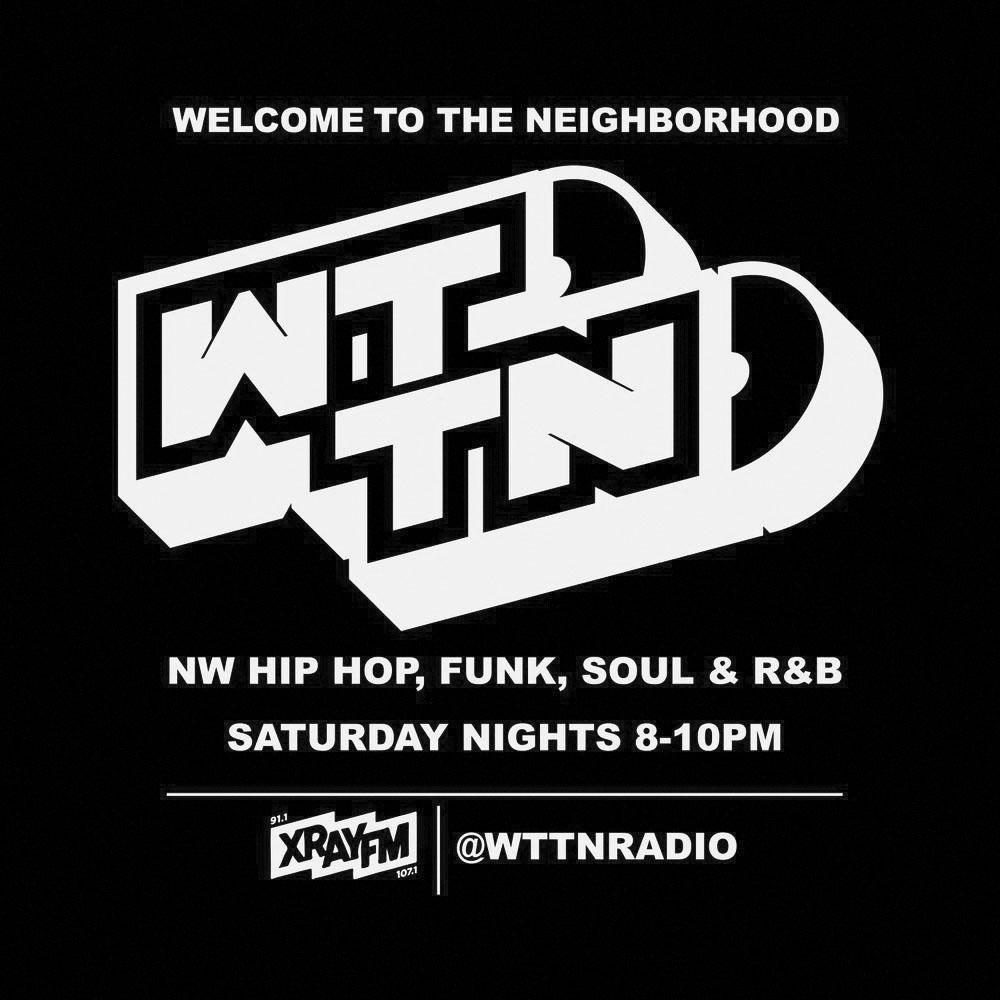
As the clock strikes 8:00, a familiar instrumental fades in on XRAY FM, one of Portland’s premier music radio stations. It’s time for Welcome to the Neighborhood, a hip-hop show created by Atlanta transplant and prominent community member Cliff “DJ Klyph” Stanford which highlights music by local stars and newcomers. For unknown Portland hip hop artists, it is a premier stage for connecting this music to an otherwise unaware city.
“When I moved to Portland, I came with a demo in hand that I’d recorded while in New Orleans with my high school friend,” says Stanford. After joining a growing scene of late night open mics, he eventually took notice of a new radio station, KZME. “There’s an old saying—‘Be the change you want to see in the world.’ With the great talent here in Portland, one of the challenges for me was how to access it. For someone new to the city as I was at one time, how do you find out who the local emcees are?” This led to the creation of Welcome to the Neighborhood.
Portland’s hip hop scene is small and dense, with a focus on complex lyricism, as characterized by The Portland Monthly. The talent is historied, with a shared competition for being the first to reach greater notoriety. While some have achieved occasional blips on national radars from artists like Vursatyl and support from the Blazer’s Damian Lillard, for a long period of time the scene did not produce a national star.
That is, until Adam Daniel, better known as Amine. Reaching national superstardom, his rise did not come through the traditional means of the community. “I never had the opportunity to build with him,” Stanford says. “I only saw him perform after he’d achieved the great level of success he has.” Instead, he is an example of how streaming has changed the community. “The internet has provided an amazing gateway that has broken down the barriers of neighborhoods, regions, even countries. So a rapper from St. Johns can reach listeners in SE Portland simply by posting on Soundcloud.”
With Amine’s support on the national stage, Alana “The Last Artful, Dodgr” Chenevert, soon emerged, this time from a far more recognized position in the Portland community. She was born in Los Angeles but moved to the local area after graduating college.“[T]racks she’s done with [local artists] initially introduced her to a well-established fan base,” said Clifford. “But Dodgr’s unique style quickly made us all see her talent.” Since then, she’s achieved national attention, including a feature on recent Grammy winner Anderson .Paak’s album Oxnard.
Both artists have made important contributions to the Portland culture. “I’m grateful to have hosted [Dodgr] on Welcome to the Neighborhood,” says Clifford, “and though she continues to be featured on bigger stages like the Anderson .Paak project Oxnard, you can still catch her at a local event in the city. And she still responds to my texts.”
Portland has one of the most prolific music scenes globally, with infrastructure in place through distribution and venues. However, the whitest big city in the country is not always supportive of a traditionally black art form. “The battle that hip hop has traditionally fought with the city of Portland has driven some artists away due to an inability to support themselves through their music, or simply caused some artists to stop making music entirely.” says Clifford. “Venues being unwilling to or unable to support the scene due to outside pressures contributed to this, [as well as] the loss of performance spaces due in part to cultural modification of neighborhoods or gentrification, and the sometimes purposeful… propaganda that hip hop equals danger.”
This year, Welcome to the Neighborhood celebrates its tenth anniversary. As an important part of growing the scene, it is not looking to go anywhere soon. “The journey has been eventful—sometimes trying, when I wonder if my time has come, if it’s time to hang up the headphones,” says Stanford. “[I wonder if] maybe the city doesn’t need me anymore with so many other outlets now. But then I’ll get a note of thanks, of gratitude or I hear that emcee that hasn’t been able to get on terrestrial radio yet and that lets me know I’m still serving a purpose with the show.”

































